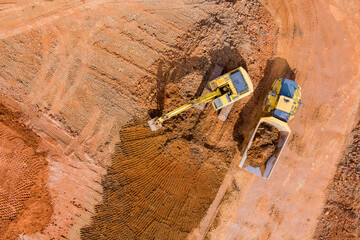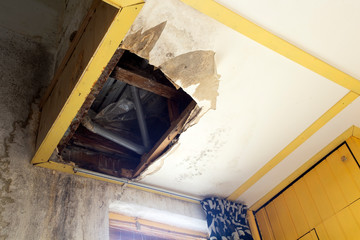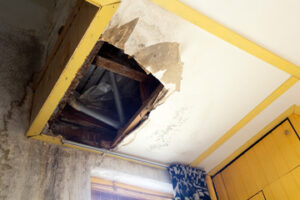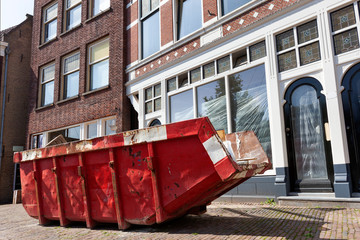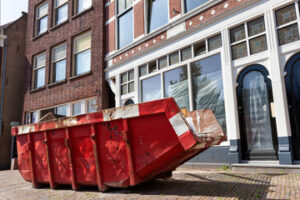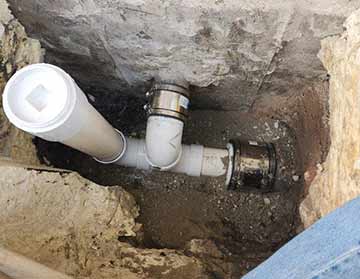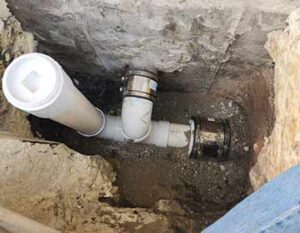Excavating Contractor plays a crucial role in construction projects. They handle site preparation, grading, and trenching. Their work ensures a stable foundation for buildings and infrastructure. Proper excavation is essential for long-term structural integrity.

Advanced technology has transformed excavation practices. GPS-guided equipment improves accuracy and efficiency. Laser technology helps define precise grading levels. These innovations reduce errors and increase productivity.
Excavating contractors often work with geotechnical engineers. Soil analysis determines the best excavation methods. Different soil types require tailored approaches. Understanding soil composition prevents foundation issues.
Environmental regulations have influenced excavation practices. Contractors must manage soil displacement and erosion control. Proper drainage systems prevent water accumulation. Sustainable excavation methods minimize environmental impact.
Excavation includes both surface and underground work. Surface excavation involves clearing and leveling land. Underground excavation includes digging for utilities and basements. Both require careful planning and execution.
Site clearing is the first step in excavation. Trees, rocks, and debris are removed. This creates a clean slate for construction. Proper clearing ensures unobstructed excavation work.
Grading is essential for water runoff management. Sloped surfaces direct water away from foundations. Proper grading prevents flooding and erosion. Contractors use specialized equipment for consistent results.
Trenching is necessary for utility installation. Contractors dig narrow, deep channels. These house electrical lines, plumbing, and drainage systems. Precise trenching prevents utility damage and ensures safety.
Shoring and shielding protect workers during excavation. Shoring reinforces trench walls. Shielding provides a protective barrier. Safety measures reduce the risk of collapse and injury.
Rock excavation requires specialized techniques. Blasting and drilling break down hard materials. Controlled explosions minimize surrounding damage. Proper handling ensures safe and effective rock removal.
Dewatering prevents water accumulation in excavation sites. Pumps and drainage systems remove excess water. This stabilizes the soil and prevents shifting. Effective dewatering ensures uninterrupted excavation.
Excavating contractors also manage backfilling. Once utilities are installed, trenches are filled. Compaction ensures soil stability. Backfilling prevents surface settling and damage.
Mass excavation involves large-scale soil removal. Bulldozers and excavators handle high volumes of material. Strategic planning prevents over-excavation. Mass excavation is common in large infrastructure projects.
Excavation for road construction involves careful grading. Proper slope and compaction improve road longevity. Drainage channels prevent water damage. Road excavation ensures long-term surface stability.
Foundation excavation requires precision and stability. Contractors dig to specific depths and dimensions. Reinforced foundations depend on proper excavation. Stability ensures structural integrity.
Cut and fill excavation balances soil removal and replacement. Excess soil from one area fills another. This reduces waste and improves site leveling. Cut and fill excavation enhances site balance and efficiency.
Excavating contractors often work with demolition teams. Structures must be safely removed before excavation. Debris is cleared and recycled when possible. Demolition creates space for new construction.
Utility excavation involves navigating existing infrastructure. Contractors locate and protect existing lines. Damage prevention reduces costly repairs. Careful utility excavation ensures uninterrupted service.
Stormwater management is part of excavation planning. Drainage systems prevent flooding and erosion. Contractors design channels and retention ponds. Proper stormwater management protects surrounding areas.
Excavation for retaining walls involves strategic reinforcement. Contractors dig precise trenches for wall placement. Backfilling and compaction stabilize the wall base. Retaining walls prevent soil erosion and slippage.
Land reclamation often requires excavation work. Contractors reshape land for development or environmental recovery. Grading and soil stabilization improve land usability. Reclaimed land supports agricultural and construction use.
Excavation for pipeline installation requires precise trenching. Contractors handle large-diameter pipes and complex routing. Backfilling and compaction secure pipelines. Pipeline excavation ensures long-term durability.
Excavating contractors handle complex site logistics. Equipment and materials must be transported and positioned efficiently. Traffic management ensures safe site access. Proper logistics improve project timelines and safety.
Environmental remediation involves soil removal and replacement. Contaminated soil is excavated and disposed of safely. Clean fill material replaces hazardous soil. Remediation restores land for safe use.
Excavation for landscaping includes contouring and grading. Contractors shape the land to enhance aesthetics and drainage. Proper slope design prevents water pooling. Landscaping excavation improves visual appeal and functionality.
Marine excavation involves underwater digging. Contractors use dredging equipment for harbors and waterways. Sediment removal improves water flow and depth. Marine excavation supports navigation and marine ecosystems.
Excavation for basements requires proper waterproofing. Contractors install drainage systems and barriers. Waterproofing prevents moisture damage. Basement excavation creates additional usable space.
Subsurface excavation involves navigating buried structures. Contractors use radar and mapping technology. Avoiding existing infrastructure prevents damage. Subsurface excavation requires precision and careful planning.
Earthmoving involves large-scale soil and rock removal. Excavators, bulldozers, and loaders handle material transport. Proper earthmoving prevents soil instability. Efficient earthmoving accelerates project timelines.
Excavation for athletic fields requires precise grading. Flat surfaces improve playability and drainage. Specialized equipment ensures uniform soil compaction. Proper excavation enhances field performance and durability.
Perimeter excavation defines property boundaries. Contractors dig along property lines for fencing and infrastructure. Accurate measurements prevent encroachment. Perimeter excavation protects legal boundaries.
Excavation for artificial ponds and lakes involves careful contouring. Contractors design water retention and drainage systems. Proper grading prevents overflow and erosion. Pond excavation enhances landscape design and water management.
Storm drain installation requires precise trenching and grading. Contractors install pipes and catch basins. Proper slope ensures water flow and drainage. Storm drains prevent flooding and infrastructure damage.
Construction site access requires excavation for temporary roads. Contractors level and compact soil for vehicle access. Gravel and soil reinforcement improve traction. Site access excavation ensures smooth transport of materials.
Land leveling involves removing high points and filling low areas. Contractors create a balanced surface for construction. Proper leveling improves structural stability. Leveling prevents foundation settlement and damage.
Excavation for bridge construction requires deep foundation work. Contractors install piers and abutments in stable soil. Proper excavation prevents shifting and settling. Bridge excavation supports long-term structural integrity.
Excavation for tunneling involves complex engineering. Contractors manage soil pressure and reinforcement. Ventilation and safety measures ensure worker protection. Tunnel excavation supports transportation and infrastructure needs.
Excavation for landfill sites involves deep trenching. Contractors design layers for waste containment and drainage. Proper excavation prevents leaching and contamination. Landfill excavation ensures environmental safety.
Excavating contractors work with surveyors to define site boundaries. Accurate surveying prevents property disputes. Contractors follow detailed site plans. Proper surveying improves excavation accuracy and efficiency.
Excavation for solar farms involves grading and trenching. Contractors create stable foundations for panels. Proper slope ensures maximum sunlight exposure. Solar farm excavation supports renewable energy production.
Foundation excavation for wind turbines requires deep and stable footing. Contractors account for wind load and soil stability. Proper excavation ensures turbine longevity. Wind farm excavation supports renewable energy infrastructure.
Excavation for agricultural fields improves soil drainage and aeration. Contractors use specialized plows and graders. Proper soil preparation increases crop yield. Agricultural excavation supports sustainable farming.
Excavating contractors use advanced materials for soil stabilization. Geotextiles and chemical treatments improve soil strength. Reinforced soil prevents shifting and settling. Stabilized soil enhances construction durability.
Excavation for water treatment plants involves trenching and grading. Contractors install pipelines and filtration systems. Proper slope ensures water flow and processing. Water treatment excavation supports clean water access.
Excavation for underground parking requires structural reinforcement. Contractors dig multi-level foundations. Reinforced walls prevent collapse and shifting. Parking excavation supports urban infrastructure.
Excavating contractors handle complex terrain challenges. Steep slopes and rocky soil require specialized equipment. Contractors adapt methods based on site conditions. Versatile excavation techniques improve project outcomes.
Excavation supports infrastructure expansion and development. Contractors prepare land for roads, utilities, and buildings. Proper excavation prevents future structural issues. Skilled excavation enhances project success.
